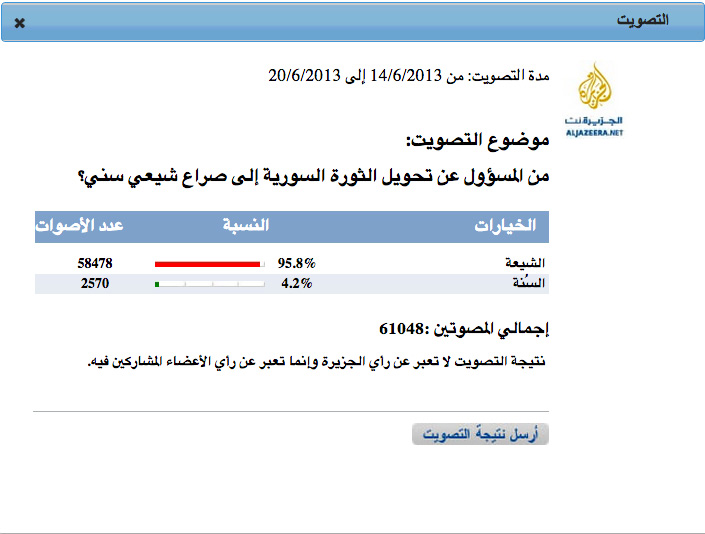17 Oct 2014 | Bahrain, Bahrain Statements, Middle East and North Africa, News and features
Nine human rights organisations called on the British government on Friday to speak out publicly in the case of activists currently being detained in Bahrain. Prominent human rights defenders Nabeel Rajab, Zainab Al-Khawaja and Ghada Jamsheer have all been arrested and face lengthy prison sentences in Bahrain for cases of peaceful expression.
This echoes the message from Maryam Al-Khawaja, a prominent Bahraini activist and co-director of the Gulf Centre for Human Rights, earlier this week.
You can imprison a human rights defender, but you can’t stop the human rights cause, Al-Khawaja told a packed press conference in London on Wednesday, organised by Index on Censorship and the Bahrain Institute for Rights and Democracy (BIRD).
She urged UK authorities to speak out about rights abuses in her country, which she said is being run like a business by the ruling Al-Khalifa family. This comes after the arrest of her colleague, 2012 Index advocacy award-winner Bahrain Centre for Human Rights (BCHR) president Nabeel Rajab. He is facing charges of insulting government institutions on Twitter. His trail opens on 19 October.
Also on Wednesday, her sister Zainab Al-Khawaja, who is 8 months pregnant, was sentenced to seven days’ detention for publicly insulting King Hamad bin Isa Al-Khalifa by ripping up a picture of him in court. She was in court over charges connected to her previous human rights campaigning.
Al-Khawaja, a dual Danish and Bahraini citizen, was herself recently released on bail after being arrested at Bahrain International Airport when trying to enter the country to see her father. She said: “I was stopped at the airport where I was told falsely that my citizenship had been revoked.”
She was then assaulted by police at the airport, and is still recovering from a torn muscle in her shoulder as a result. The police officer who assaulted her later filled charges against Al-Khawaja, presenting a scratched finger as medical evidence.
Al-Khawaja spoke of her time in Isa Town women’s prison, where she spent 19 days; she described poor sanitation and said there were no nurses or doctors available at night and it took 45 minutes for ambulances to reach the facility.
Al-Khawaja’s father, Abdulhadi Al-Khawaja, the founder of 2012 Index award winner BCHR, is serving a life sentence after playing a prominent role in the country’s 2011 pro-democracy protests.
Al Khawaja described how changes could be implemented in Bahrain, saying there is a need for pressure from countries such as the UK and US, who have the capability to make sure the government respect human rights.
“Reform can be implemented and enforced by accountability,” she said.
Nominations are now open for the Index Freedom of Expression Awards 2015. Put forward your free expression heroes here.
Nabeel Rajab Arbitrarily Detained
Please ask your MP to support the campaign by writing to the Foreign and Commonwealth Office. (This web app will take you to the website of the Bahrain Institute of Rights and Democracy)
Maryam Al-Khawaja spoke about her arrest, Nabeel Rajab’s case and more in her opening statement
She also described conditions inside Isa Town Prison, where she was held for 19 days
Videos via Truthloader
This article was originally posted on 15 October 2014 and updated on 17 October 2014 at indexoncensorship.org
11 Feb 2014 | Comment, United Kingdom

A dangerous religious fanatic, yesterday (Image Demotix/David Mbiyu)
Last weekend, I appeared on the BBC’s The Big Questions, the Sunday morning religion and ethics show that airs at precisely the time Christians should be at church services.
The Big Question I’d been hauled in to address was whether there were any topics that were too sacred for humour – a variation of the old “where do you draw the line?” which has been in the news quite a bit of late, with the Jesus and Mo cartoon controversy (which started with The Big Questions), the attempt in Northern Ireland to ban a Reduced Shakespeare Company play based on the Bible, and the banning of demagogic French comic Dieudonne from the UK.
As it turned out, we barely discussed any of these specific topics, but rather kept to what could now almost be called the traditional touchstones in these conversations: Motoons and The Life Of Brian.
The discussion was disappointingly calm, but I did, I think, manage to get one crucial point across, one I’d been meaning to bring up since discussing the RSC ban in Northern Ireland.
In the context of religion, censorship is increasingly, simply, about control. Specifically, who is in charge of the sacred text.
At the height of the Rushdie Affair, Christopher Hitchens noted that it represented a war between the ironic mind and the literal mind. This was particularly apparent when watching Free Presbyterian preacher David McIlveen discuss the Reduced Shakespeare Company’s abridged Bible spoof. McIlveen could not, and would not understand the idea that his interpretation of a text was not the only one. Speaking on the Nolan show, he repeatedly suggested that the RSC was presenting a false version of the “Word of God”. Of course, to an extent, they were, but McIlveen seemed to confuse interpretation with, well, lying.
I was reminded of this while reading an exchange between Alex Clark and Stephanie Merritt in the Observer last Sunday.
They were discussing JK Rowling’s view that in hindsight, she would not have had Hermione and Ron, two characters from her Harry Potter series, ending up romantically entangled. Merritt and Clark debated interestingly on authorship and ownership, particularly in the age of fan fiction.
A lot of people are very emotionally attached to the Harry Potter stories, and no doubt some were genuinely unhappy with Rowling’s suggestion that well, the sacred text may be wrong after all. Even her position as creator of that particular universe did not leave her immune from criticism. As Merritt – a historical novelist whose own hero is heretic Giordano Bruno – notes: “I can see why fans felt insulted. They’ve made an emotional investment in those characters and in the storyline as it exists.”
It’s unlikely that Rowling will revise the tale of Hermione and Ron’s romance, but, considering it’s quite possible that at some point, Potterism will become a religion (if grown adults are playing Quidditch, we’re probably half way there), then it’s worrying that Rowling has already introduced a potential point of schism. Do you believe in the true text? Do Ron and Hermione belong together? Or do you believe what the great transcriber of Potterism, Ro-Ling said, that they weren’t suited and maybe split after a fling. Should Hermione even have ended up with Harry?
This could be worse than anything Northern Ireland has seen.
This article was published on 11 February 2014 at indexoncensorship.org
17 Jun 2013 | Middle East and North Africa
Al Jazeera Arabic has posted an eyebrow-raising poll on their website, where they ask who has turned Syria’s revolution into a sectarian conflict. Voters can choose from two options: “Shia” and “Sunni.”
Really?

Special thanks to @Falasteeni for the link
16 Nov 2011 | Europe and Central Asia, News and features, United Kingdom
Government attempts to clamp down on sectarian abuse and violence are a recipe for uncertainty and censorship, says David Paton
(more…)


